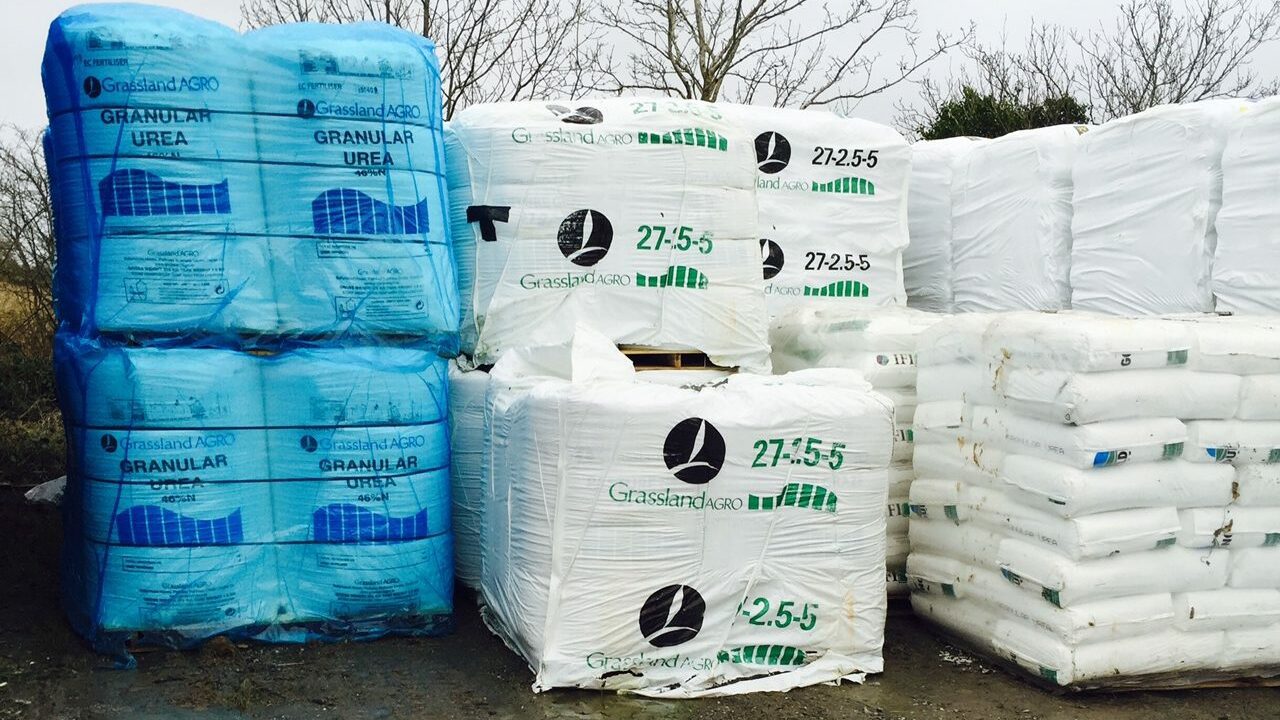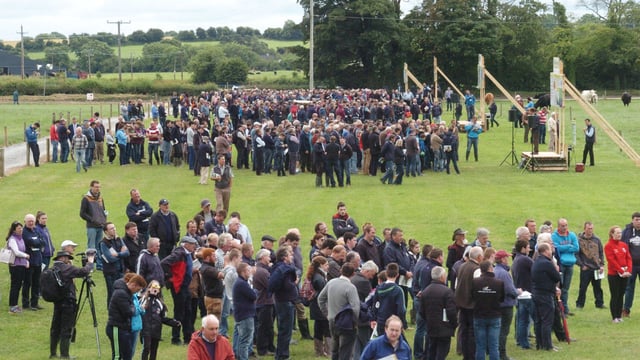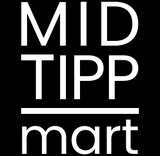DAFM chief inspector talks fertiliser database and derogation
Industry sources have indicated that some farmers are buying fertiliser from Northern Ireland in order to avoid having their fertiliser purchases registered on the National Fertiliser Database.
Agriland spoke with chief inspector at the Department of Agriculture, Food and the Marine (DAFM), Bill Callanan, to get his thoughts on it.
It can be said that the NFD has caused a bit of frustration among farmers as they feel they are being closely monitored on every step they make and that they are constantly being limited and penalised for spreading fertiliser.
The Veterinary Medicinal Products, Medicated Feed and Fertilisers Regulation Act 2023 became law on the July 11, 2023. This Act provides for the establishment of the NFD.
The aim of the database is to better record the sale of fertiliser and lime in the country. Once you are registered on the database, purchases of fertiliser are automatically recorded.
According to Callanan, the database was introduced to better nutrient movement in a way to help farmers in terms of how they can report, how they can contribute to their own sustainability metrics.
There has always been a legitimate trade of fertiliser from Northern Ireland, and this trade will continue but there should be appropriate reporting under the NFD, according to Callanan.
The chief inspector went on to say that if there is proof of clear and deliberate avoidance of the requirements of the database, you will be deemed ineligible for derogation.
That will also include the second year, meaning for a few years you will not be able to get a derogation and there are legislative provisions in term of fines is somebody is somebody is deliberately circumventing.
"We don't do a check of the fertiliser database for every farmer in the country - it was never designed that way," Callanan added.
However, it used where there is inspections for 1% cross compliance, 1% of farmers and 10% of farmers who are in derogation but it is not used across all farmers and should not be an issue of concern.
The aims of the NFD are as follows:
- Provide accurate tracking of sales of fertiliser (incl. lime) throughout the supply chain;
- Achieve better compliance with water quality and environmental ambitions;
- Provide data for monitoring climate targets;
- Fulfils a commitment to the European Commission and key to securing any future nitrates derogation;
- In time, simplify and provide reliable data to farmers for private sustainability schemes and department schemes.
Callanan went on to say that the government was committed to securing a derogation, at the highest possible stocking rate.
He emphasised that if was this to happen, water quality has to be good and maintained and where its less than good, we need to be seen to be working collectively towards improving that.
The government has put quite a number of supports forward, whether that is incentives in terms of storage and tanks, low emission equipment, but also a €60 million EIP which supports farmers in terms of practical actions on the farm, Callanan claimed.
There is also an asset programme, where the government is putting in the finance to support half of all the advisors and free advisory service.
The government set up the water quality working group with three ambitions as follows:
- Improve water quality;
- Improve compliance for farmers, to understand the rules;
- Connect farmers to water quality locally.
Callanan highlighted that overall the water quality group are working through those agendas to support industry, farmers and the government in working together towards an improved water quality.





